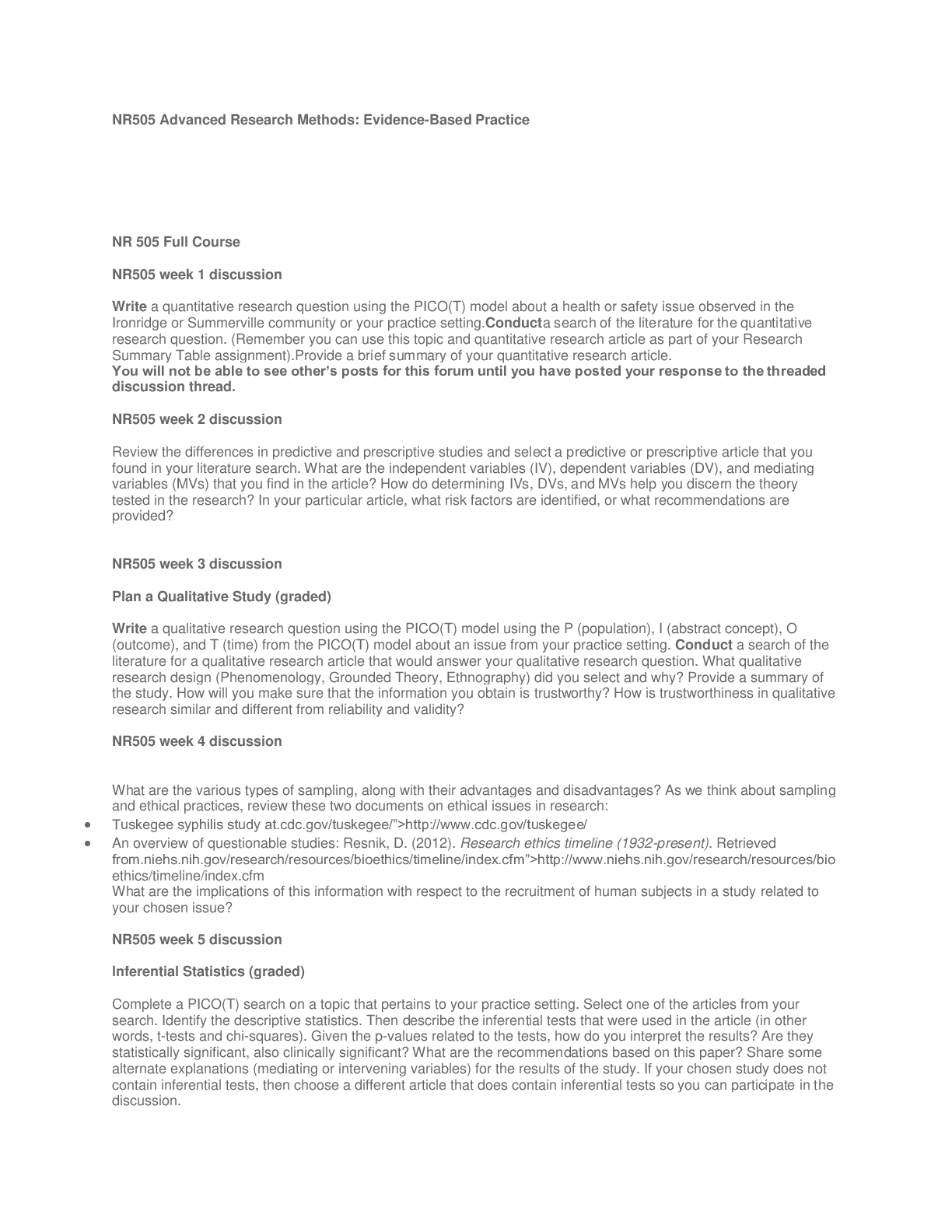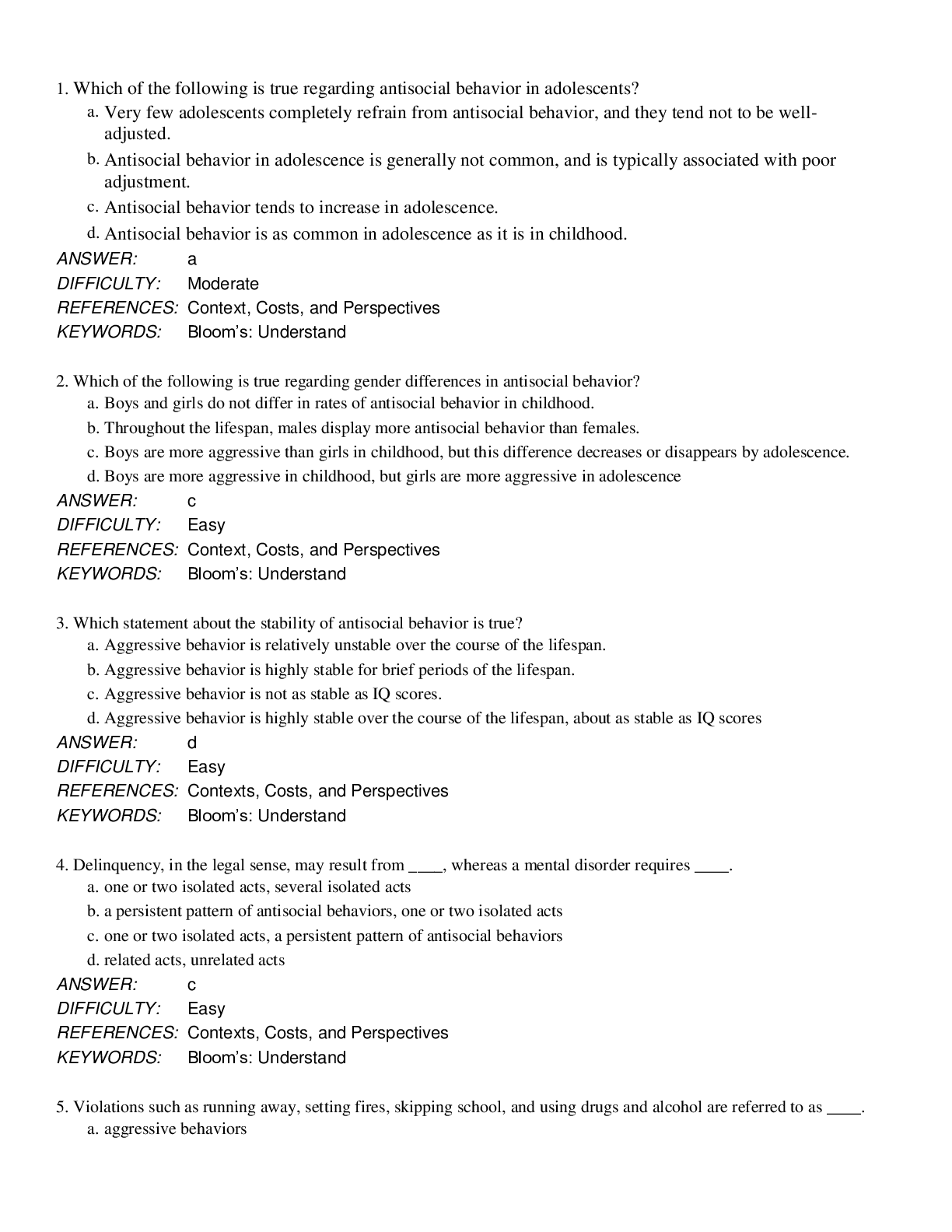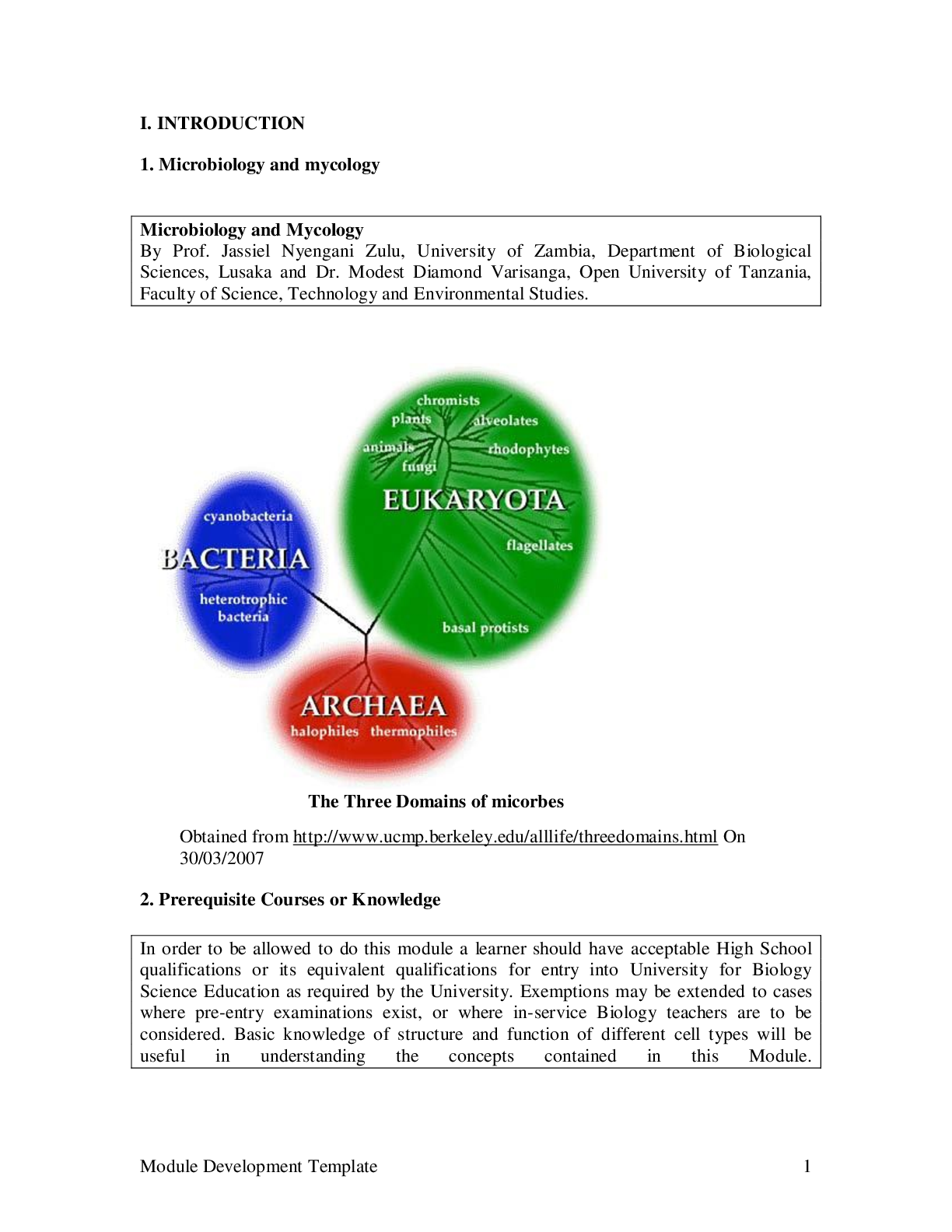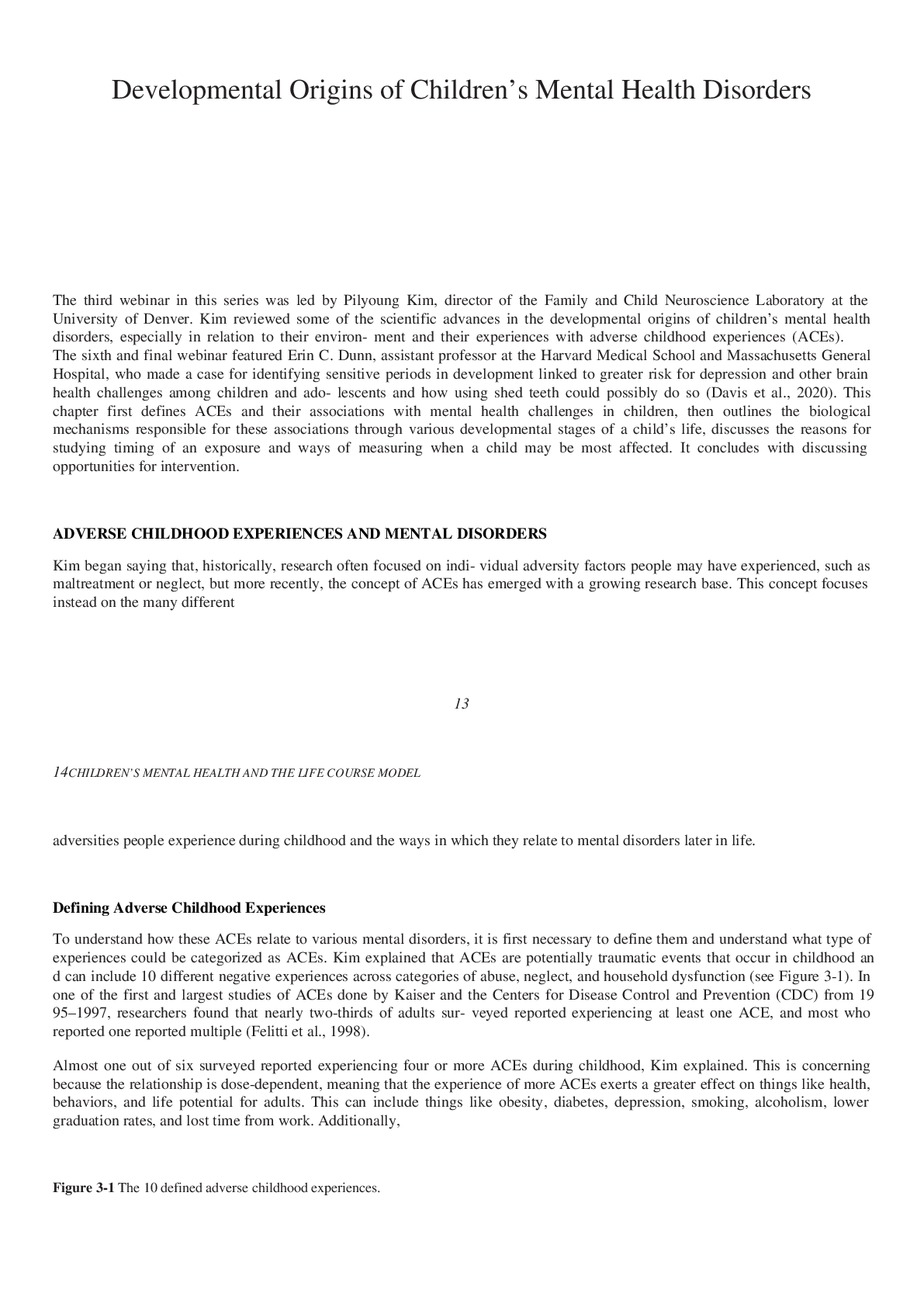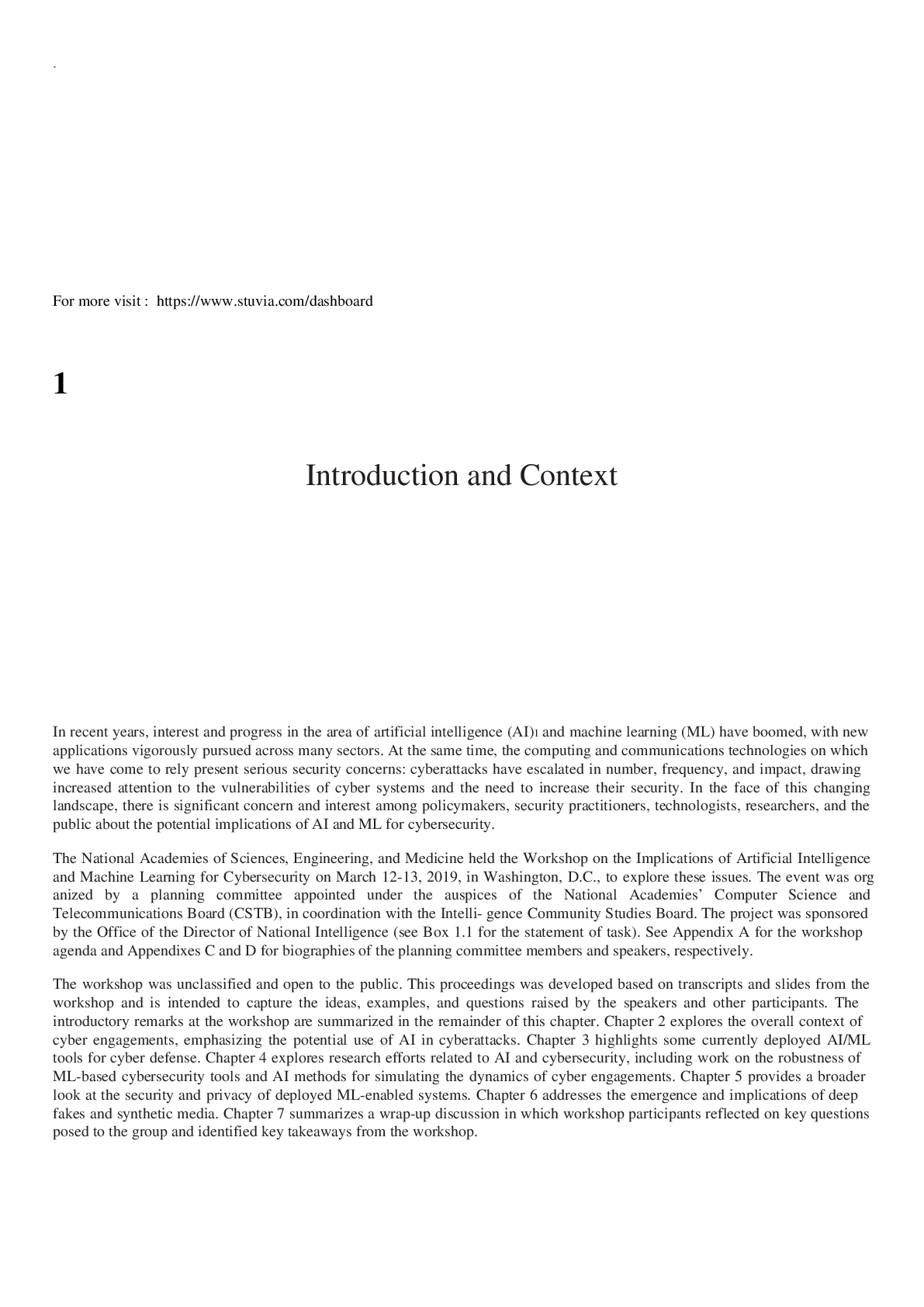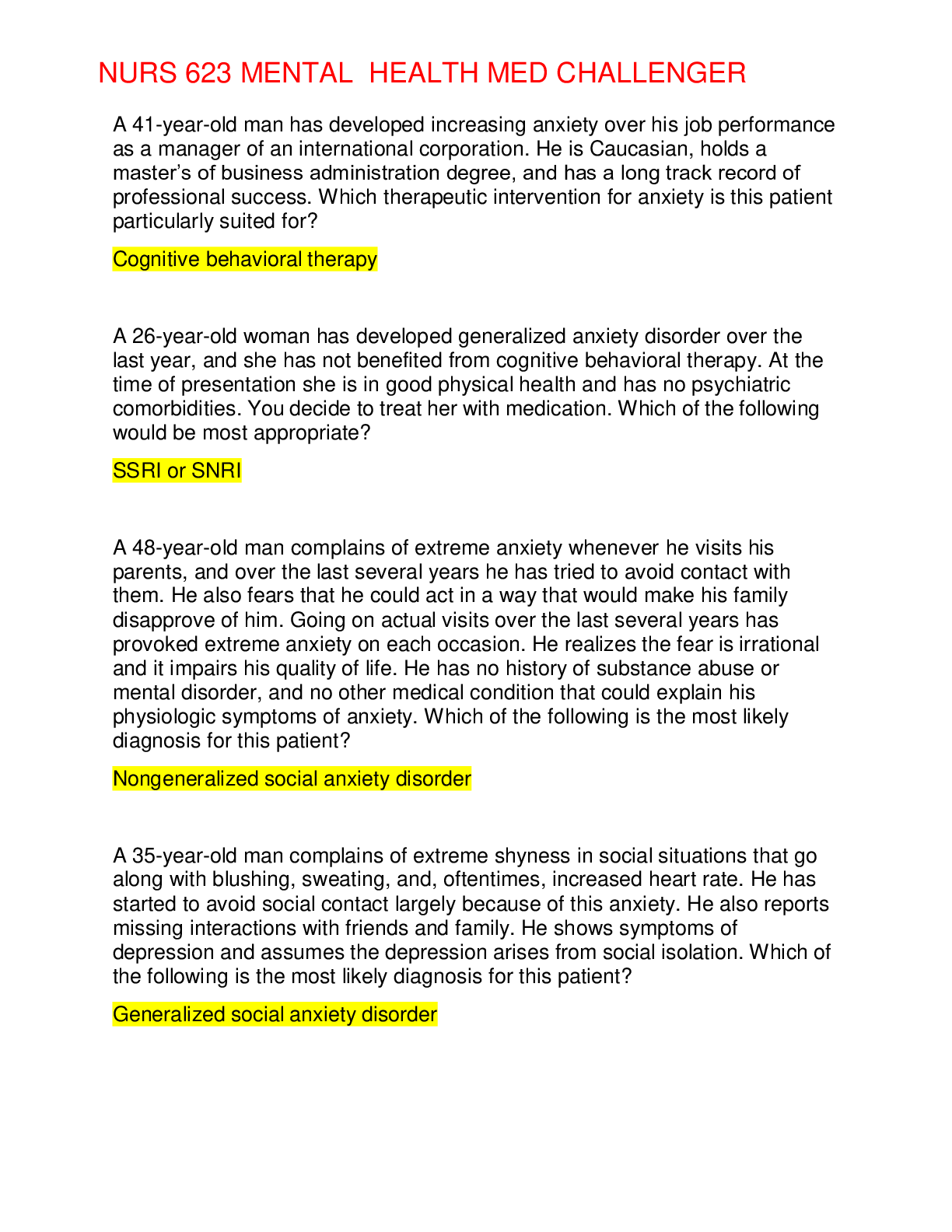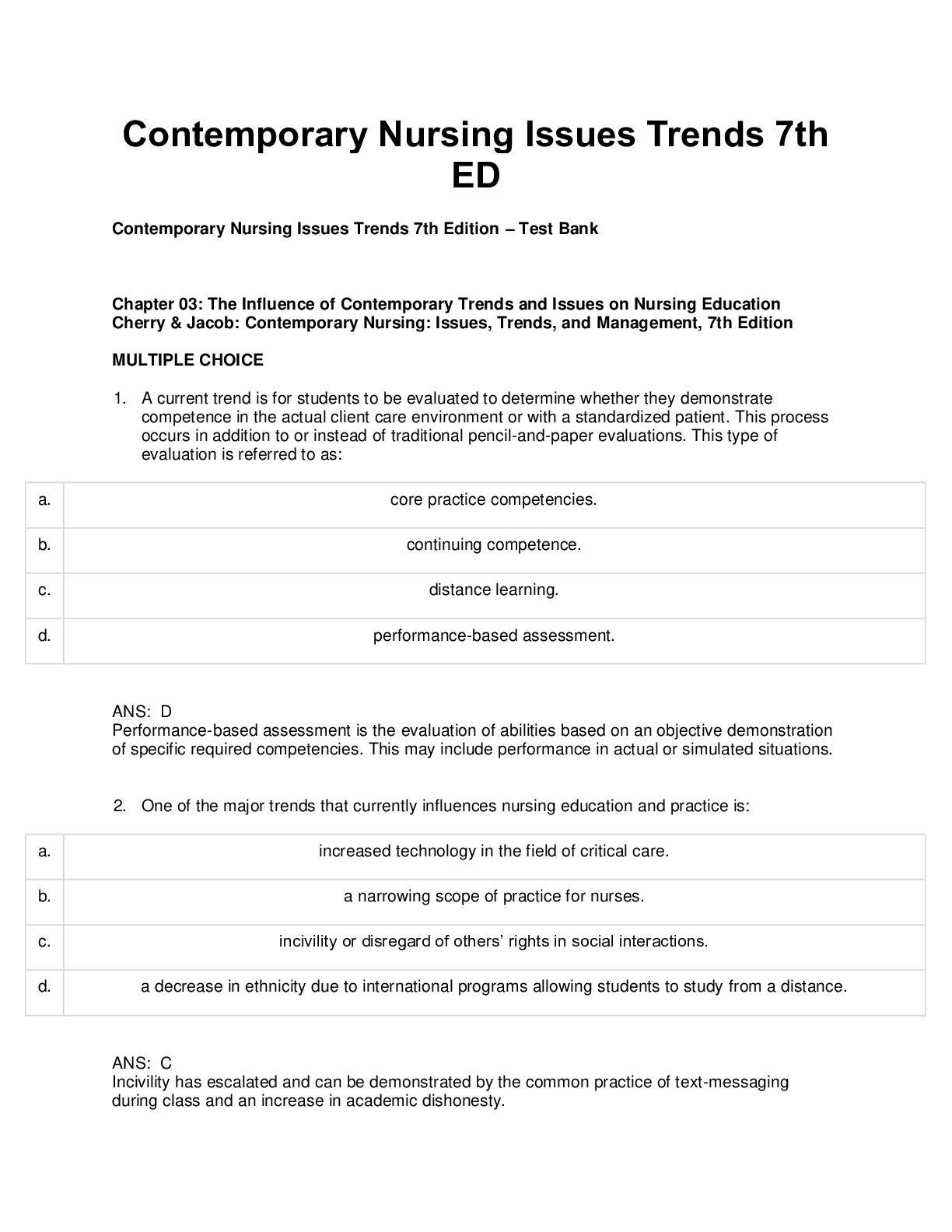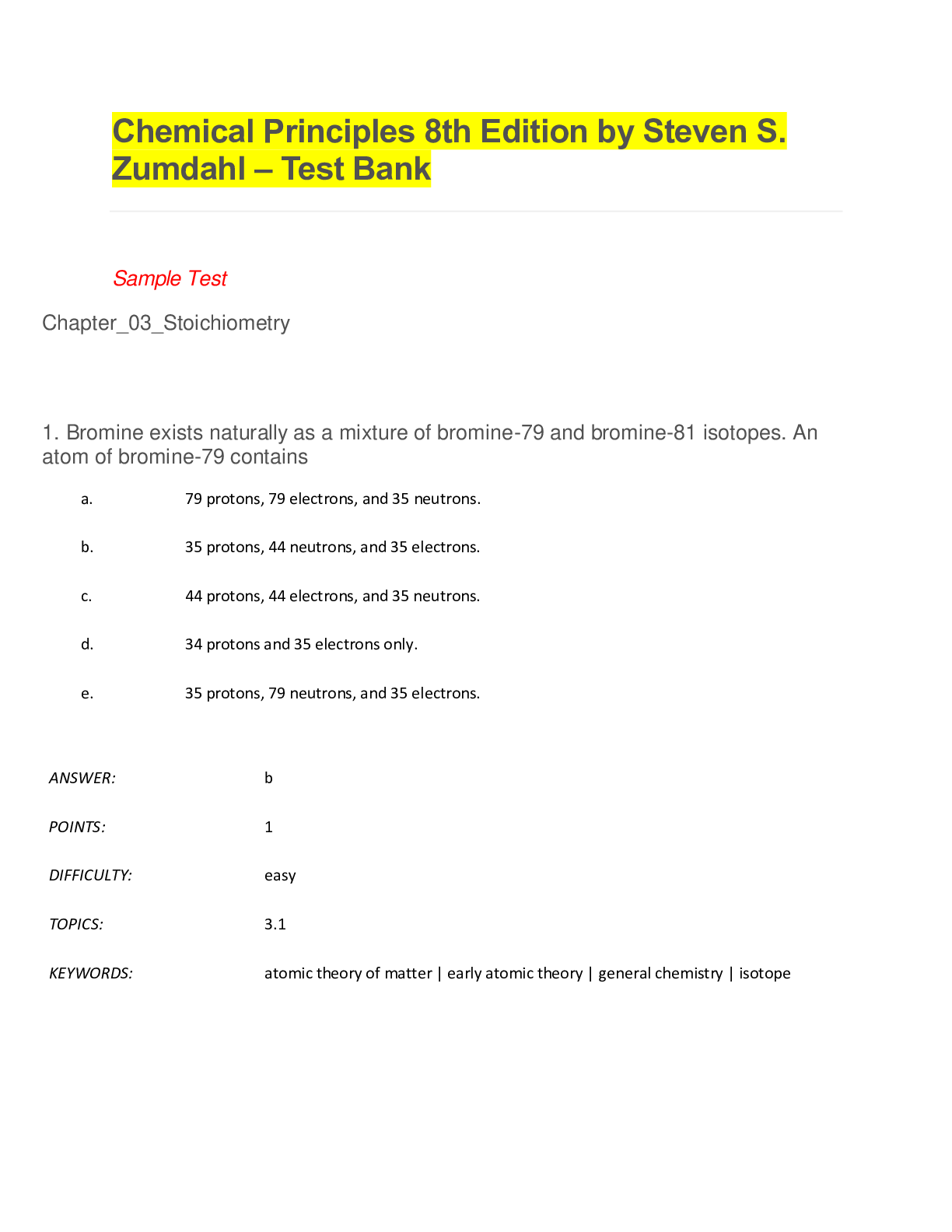Biology > HESI > CHAPTER 6 Gender Comparisons in Social and Personality Characteristics QUESTION AND ANSWERS (All)
CHAPTER 6 Gender Comparisons in Social and Personality Characteristics QUESTION AND ANSWERS
Document Content and Description Below
1. Which of the following students provides the best understanding of the social constructionist approach? a. Gene: “Our social information is constructed by an interaction of our genetic predispo ... sitions and the social world.” b. Audra: “Our beliefs about social categories are gradually acquired during the first three years of life; thereafter, it’s difficult to change them.” *c. Qing: “Our experience in our culture provides the information necessary to invent our own versions of reality.” d. Rennie: “Our knowledge about the social world is stored in mental images, rather than in language or verbal descriptions.” 2. According to the social constructionist approach to gender, a. our views of the world provide us with objective perspectives about social interactions. b. our views of the world are shaped primarily by rewards and punishments. c. we create highly accurate representations of the outside world. *d. we create our versions of reality, based on our gender-related interactions and experiences in the world. 3. Which of the following statements is the best description of the social constructionist perspective? a. People learn their social roles by the principles of operant conditioning and modeling. b. Each individual constructs a life plan, according to his or her construction of the ideal self. c. The conflicts we faced as children help us construct a prototype for our adult interactions. *d. We construct our view of the world, including what it means to be male or female. 4. According to the social constructionist approach to gender, a. each person in a culture constructs a completely different version of the reality that he or she experiences. b. social behavior can best be understood in terms of essentialism, so that all women are fairly similar in their social characteristics. c. all cultures share many basic concepts about gender, and these concepts can best be explained in terms of the principles of evolution. *d. language is an important mechanism for categorizing our social experiences and creating our individual realities. 5. Suppose that you are reading an article in a professional journal about gender differences in some social behavior. You are reading the methods section and have not yet reached the results section. You are most likely to expect a large gender difference in which of the following situations? a. when behavior is tallied by a trained observer b. when participants do not need to have special skills c. when work roles are made especially prominent *d. when other people are present [Show More]
Last updated: 3 years ago
Preview 1 out of 70 pages
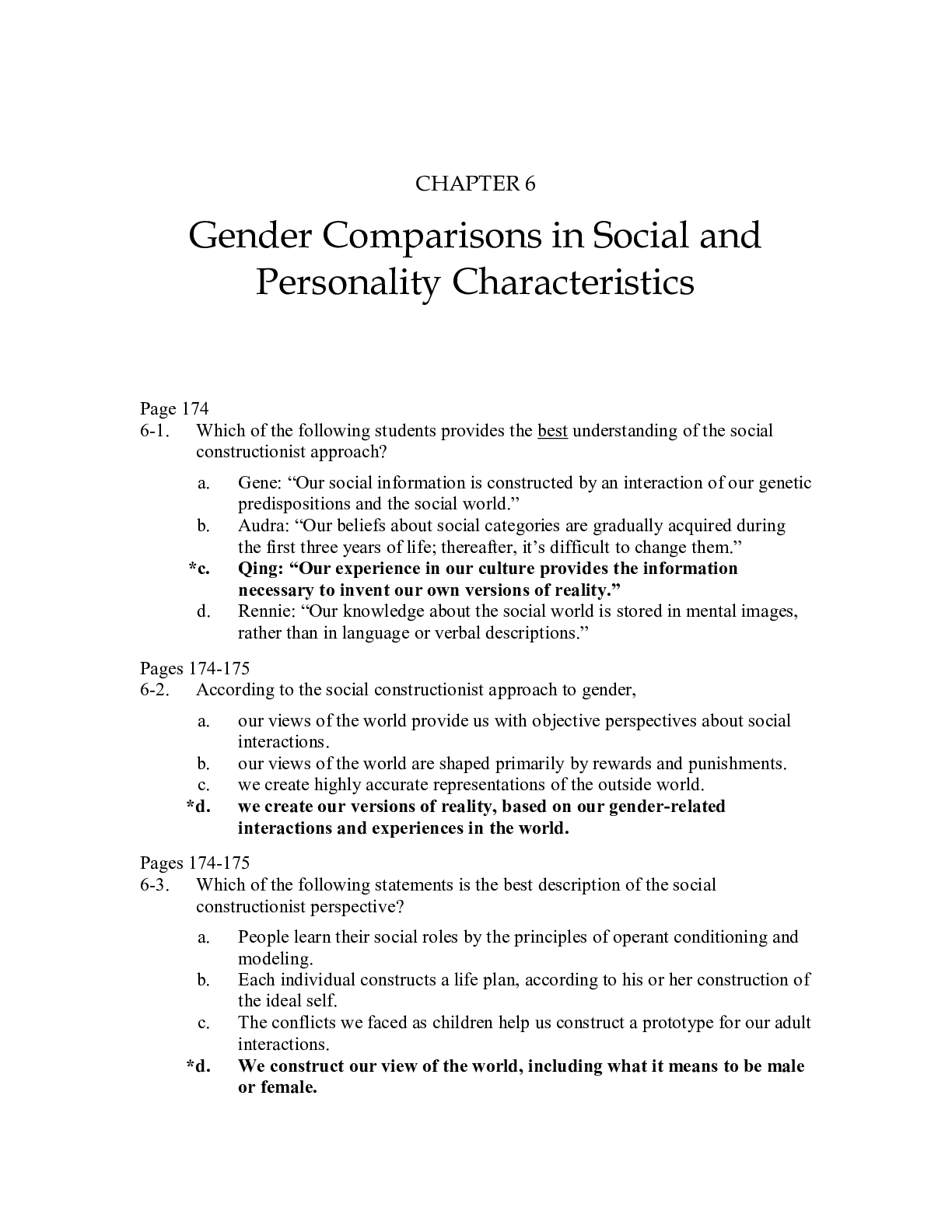
Buy this document to get the full access instantly
Instant Download Access after purchase
Buy NowInstant download
We Accept:

Reviews( 0 )
$17.00
Can't find what you want? Try our AI powered Search
Document information
Connected school, study & course
About the document
Uploaded On
Jan 27, 2021
Number of pages
70
Written in
All
Additional information
This document has been written for:
Uploaded
Jan 27, 2021
Downloads
0
Views
154


